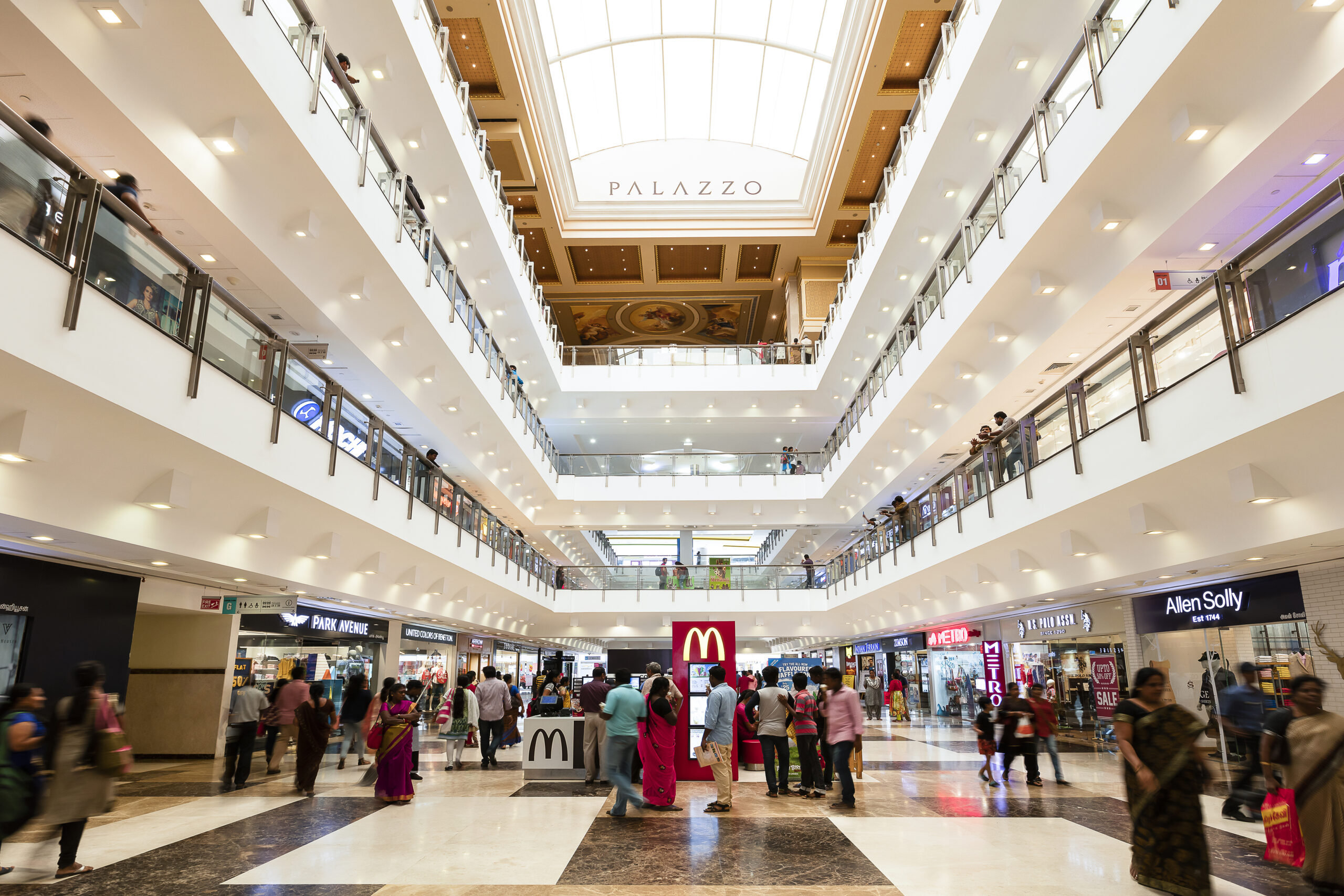Fashion and apparel retailers continued to expand their footprint, accounting for a share of more than 42% in overall leasing in Jul-Dec ’22, a report brought out by CBRE South Asia Pvt. Ltd said. The report ‘India Retail Figures H2 2022’, highlights the growth, trends, and dynamics across the retail sector in India.
The report stated international brands such as Tim Hortons, Victoria’s Secret, and Uniqlo continued to expand during Jul-Dec ‘22, despite global headwinds. As Tier II cities continued to gain popularity, Uniqlo opened its first store in Chandigarh, Tim Hortons entered Ludhiana, and Starbucks, Biba, and Shoppers Stop opened in Dehradun. During the second half of 2022, the American home furnishings shop chain Pottery Barn forayed in Delhi-NCR, opening two stores in rapid succession. Adidas opened their largest experience store in Delhi-NCR, and Zara, Nike, and Azorte are among the other companies that have launched experience/ flagship stores with a wide range of tech and other services in the city.
Other prominent categories that continued to drive leasing activity during Jul-Dec ‘22 included food & beverage (~12%), along with hypermarket (~7%) categories. The entertainment category, which was impacted the most during the pandemic, also emerged as one of the top demand drivers during Jul-Dec ‘22 with ~6% share in overall space take-up.
Some prominent brands expected to launch in India over the next few months include Lavazza and Armani/Caffe from Italy, Jamba from the United States, and The Coffee Club from Australia.
The report elaborates how shoppers returned to physical retail as cities began reopening after tapering of COVID-19. Since then, shoppers have been increasingly opting for ‘hybrid commerce’ – which is essentially a mix of offline + online retail. CBRE’s Live-Work-Shop survey, whose findings will be released later this month, also indicated strong preference for offline + online retail, with more than 90% of respondents stating that they shopped via multiple channels. Despite the continued growth of online retail, ‘physical retail’ continues to gain prominence among Indian shoppers. As a result, strong footfalls led to expansionary space take-up by domestic and international retailers, especially during Jul-Dec ‘22. CBRE’s Asia Pacific Leasing Sentiment Survey (December 2022) also reported stronger expansionary sentiments among retailers since mid-2022.
According to the report, retail leasing activity surged by 5% to 2.43 million sq. ft in Jul-Dec ‘22 as against 2.31 million sq. ft. reported in Jan- Jun ’22 period. Overall, in 2022, leasing activity in the retail sector grew by 20% Y-o-Y to 4.7 million sq. ft.
Anshuman Magazine, Chairman & CEO – India, South-East Asia, Middle East & Africa, CBRE, “The Indian retail sector is recovering, and we anticipate that it will continue to gain momentum through 2023. Even amid difficult global economic conditions, international brands are expanding not only in tier-I cities but also penetrating tier-II & III cities as they see India as a potential market.”
Ram Chandnani, Managing Director, Advisory & Transactions Services, CBRE India, said, “As the cities started to reopen after the pandemic, many shoppers returned to physical retail and since then have adopted ‘hybrid commerce’. Sales in Jul-Dec ‘22 surpassed the pre-pandemic levels owing to increased consumer confidence, leading to a hike in spending. Leasing momentum is expected to further pick up in Jan-Jun ‘23 owing to anticipated space take-up in newly completed malls.”
Bangalore and Delhi-NCR, followed by Chennai and Mumbai, led leasing activity, together accounting for almost 80% of the overall space take-up during Jul-Dec ’22 period.
Rental values inched up on a half-yearly basis in certain micro-markets across most cities, driven by robust retail demand. Among high streets, rents rose by about 4-8% across select locations in Delhi-NCR, Bangalore, by 4-12% in Ahmedabad, and by about 1-3% in Mumbai. Meanwhile, prominent mall clusters in Delhi-NCR and Bangalore witnessed rental growth of 3-15% and 2-6% respectively.
With the addition of two investment-grade malls totaling nearly 1.0 million square feet in Bangalore and Pune, supply addition during Jul-Dec ’22 increased by 129% on a half-yearly basis. Even though supply addition decreased by 69% Y-o-Y during the review period, pent-up supply is expected to become operational in the first half of 2023, and the overall supply for the year is predicted to exceed the pre-pandemic levels.


























